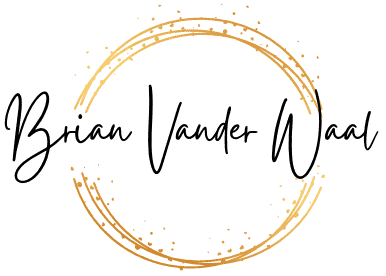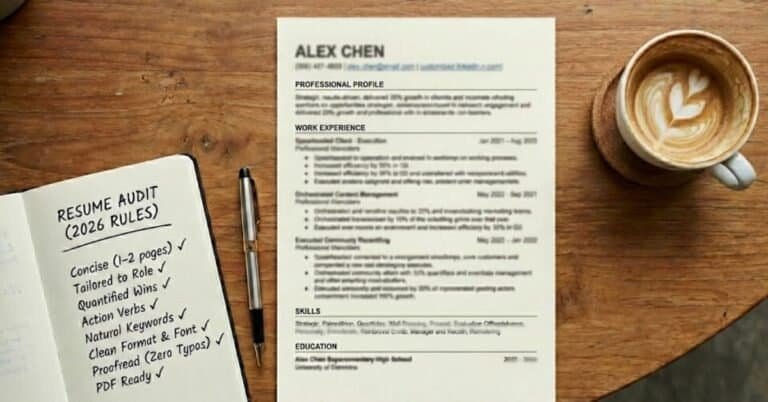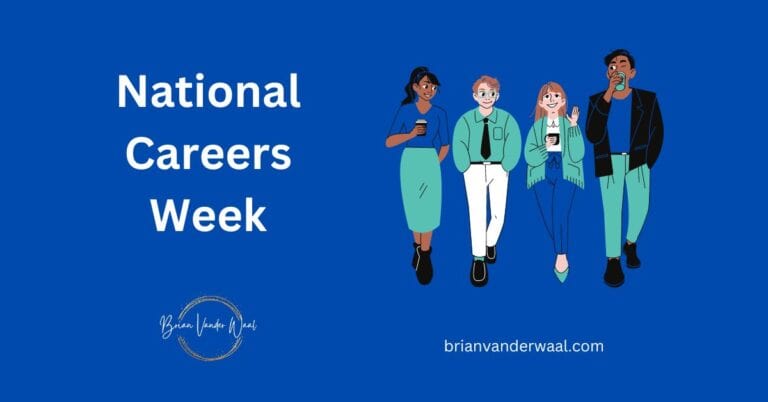Have you ever wondered what it takes to turn your passion for guiding people’s careers into a thriving career coaching business? Becoming a successful career coach requires a comprehensive understanding of career development, coaching skills, and effective communication. Aspiring career coaches who want to build a thriving coaching business must also equip themselves with the necessary training. In this blog, I will guide you on how to become a Career Coach and launch your career coaching business.
Becoming an effective career coach involves helping clients define and attain their career goals. More specifically, career coaches offer:
- Career services such as career coaching, CV, resume, cover letter creation and interview prep
- Guidance to navigate career decisions and the complexities of the job market
- Support to help their client succeed as they begin their new career.
So, if you want to become a great career coach, join me in this exploration. I will unravel the steps and strategies to become a certified career coach.
Are you ready to step into a role that transforms careers and enriches your professional journey?
What Skills Do You Require to Become a Career Coach?

Career coaching demands a diverse skill set that goes beyond mere career expertise. You are not just a Career Advisor but also a guide, mentor, and confidant. Communication skills are critical. They allow you to articulate insights clearly, both verbally and in writing, inspiring confidence in your clients. Active listening skills and listening empathetically are also essential for this role.
Beyond the basics, the ability to provide strategic guidance to your clients is essential. Career Coaches provide a personalized roadmap for each client, blending their ambitions with the ever-evolving job market. You must understand how to guide your clients in creating their SMART action plans.
Further, the best career coaches are adaptable. As careers and employment are always changing, your capacity to evolve alongside it will set you apart. Embrace technology, including AI, with open arms, harnessing its power to:
- Analyze data
- Offer tools
- Provide virtual coaching sessions
- Tap into a broader audience.
If you fail to embrace technology within your practice and business, you will not last long in the industry.
Above all, to become a career coach, you must have a passion for continuous learning. Staying abreast of industry trends, emerging professions, and the rapidly changing nature of work is essential. Remember that being a career coach is not just a profession. Rather, it’s a commitment to empowering others on their professional journeys. What skills will you develop to ensure you are guiding those seeking your expertise more effectively?
How to Become a Career Coach and Requirements
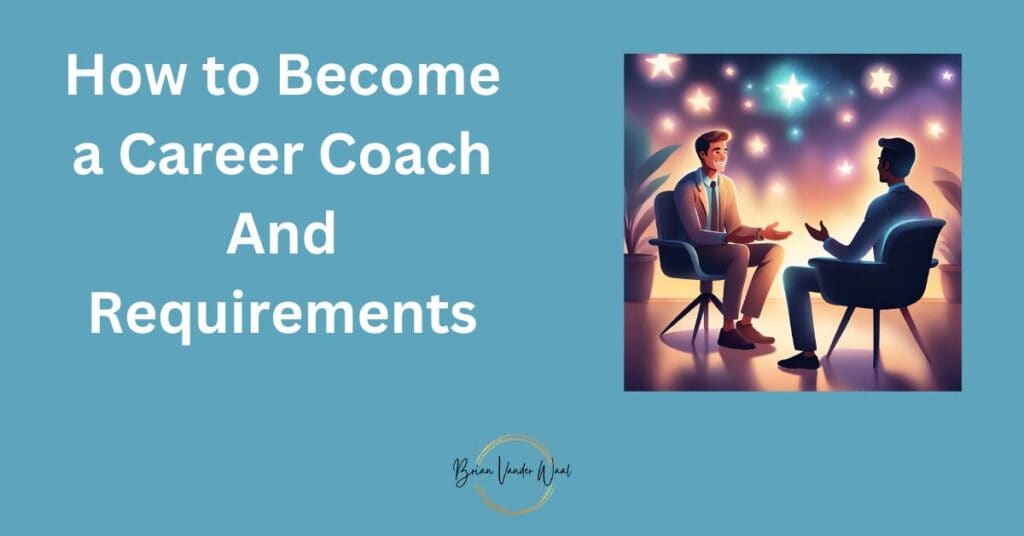
When considering a career in coaching, it’s essential to understand how to become a career coach. Becoming a career coach involves a strategic blend of education, experience, and a genuine passion for helping others succeed. To become career coaches, individuals must acquire specialized training in:
- Coaching skills
- Career advice and guidance
- Career planning
- Job search strategies
- Counselling techniques
- Coaching practice.
Additionally, obtaining certification or qualifications from universities, colleges, accredited coaching programs, training providers, or awarding bodies is fundamental to establishing oneself as a professional in the field. We will discuss this in more detail below.
Requirements to Become a Career Coach in the USA
In the USA, begin your journey by acquiring a relevant bachelor’s degree in psychology, human resources, counselling, or career development. Then, supplement this with career coaching and counselling courses, equipping yourself with the necessary skills to excel in the field. Research and enrol in accredited coaching programs, ensuring they align with industry standards. I recommend you pursue certifications from reputable coaching organizations to prove your credibility and showcase your commitment to professional standards. We will discuss this in further detail below.
Next, network extensively with established professionals, attending industry conferences, workshops, and events. This will keep you informed about the latest trends and give you insights into changes in the job market.
Then, gain work experience through internships or volunteer opportunities to practice and improve your skills. This will set you on a path for success in career coaching.
Requirements to Become a Career Coach in the UK
The roadmap to becoming a career coach in the United Kingdom involves a similar commitment to education and practical experience. Firstly, pursue relevant education in career development, career advice and guidance, counselling, or coaching. You should ensure they are recognized by a professional body for career work, such as the Career Development Institute (CDI), or professional coaching associations. We will discuss the more specific qualifications below.
Secondly, gain experience through internships, part-time or even full-time roles working as a Careers Adviser, Careers Consultant, or Personal Adviser. This will enable you to gain theoretical knowledge in real-world settings. You can find roles in schools, colleges, universities, career organizations, local authorities, charities, and direct employment. Gaining this experience will allow you to apply theoretical knowledge in real-world scenarios.
Thirdly, consider joining a professional body for career work or a professional coaching association in the UK. This will help you keep updated on industry trends and connect with a supportive community. In particular, I recommend that you become a member of the Career Development Institute (CDI) and a registered career development professional through the CDI.
Career Coach Certification, Qualification, and Training in Career Coaching
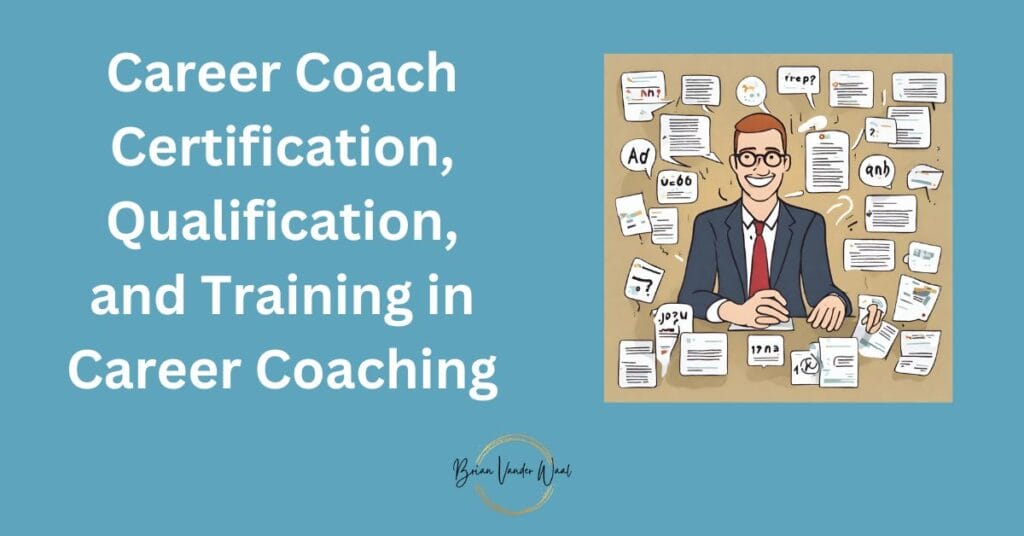
Certification, qualifications, and targeted training programs provide aspiring career coaches with the tools and knowledge to guide others effectively. Career coaching requires more than just innate skills; it also requires a commitment to lifetime learning and continued professional development.
Career Coach Certification and Training in Career Coaching in the USA
In the United States, you aren’t required to have any particular license to become a career coach. As a result, individuals with backgrounds in HR, Psychology, and Communication often find their way into the coaching profession. While official licensing is not mandatory, achieving a career coach certification establishes credibility and showcases a commitment to excellence.
Aspiring coaches should consider pursuing:
- A degree—be it an associate, bachelor’s, or master’s—in a related field like counselling, psychology, or HR
- Foundational certifications like Associate Certified Coach (ACC)
- Advanced credentials such as Professional Certified Coach (PCC) or Master Certified Coach (MCC).
Pursue a certification from esteemed organizations like the International Coaching Federation (ICF).
Career Coach Qualification and Training in Career Coaching in the UK
Similarly, the United Kingdom doesn’t mandate an official career coaching license. Although it does for registered career advisers working in educational institutions. In the absence of licensing, acquiring relevant qualifications from reputable coaching bodies, such as the International Coaching Federation (ICF) or the Career Development Institute (CDI), can establish a robust foundation for your coaching endeavors. Some examples include:
- Master’s in Career Development and Coaching Studies
- QCF Level 7 / SCQF Level 11 Qualification in Career Development (QCD)
- QCF Level 6 Diploma in Career Guidance and Development
- Level 6 Higher Apprenticeship Standard; Career Development Professional
- Level 4 Diploma in Career Information and Advice
- CDI Career Guidance Theory Certificate
- CDI Careers Leadership Certificate (Source: CDI).
Career coach qualifications and training are crucial in shaping a coach’s expertise. Organizations such as the European Mentoring and Coaching Council (EMCC) offer recognized qualification frameworks. These frameworks allow coaches to progress through Foundation, Practitioner, and Senior Practitioner levels. These qualifications demonstrate a coach’s commitment to ethical practice and ongoing professional development.
Further, specialized training programs from esteemed institutions complement formal career guidance or career coaching qualifications. In particular, they provide experience and deepen one’s understanding of effective coaching methodologies. CDI Members get free access to Continuing Professional Development (CPD) webinars, training and resources
How to Become a Career Coach Without a Degree
Although earning a related degree can be advantageous, becoming a successful career coach without one is possible. As highlighted above, individuals can pursue career coaching certification programs, attend coaching workshops, and gain work experience to become competent career coaches.
How to Become a Career Coach Without a Degree in the USA
In the United States, certifications and practical experience are key to becoming a career coach without a formal degree. Start by gaining work experience through volunteering, internships, or entry-level roles. This will give you more credibility when launching your career coaching business and seeking new clients.
Then, immerse yourself in the coaching world by attending workshops and courses from reputable coaching organizations. Earning certifications through the International Coach Federation (ICF) can give you further credibility and demonstrate a commitment to maintaining professional standards.
How to Become a Career Coach Without a Degree in the UK
Similarly, becoming a career coach without a formal degree in the United Kingdom focuses on experience and skill development. Seek opportunities through internships or entry-level roles that allow you to engage directly with individuals seeking career guidance. Some career organizations and local authorities hire staff with relevant experience and then fund their career advice and guidance qualifications. Usually, they would sponsor them to do
- Level 4 Diploma in Career Information and Advice
- Level 6 Diploma in Career Guidance and Development
- Or both (Source: CDI).
Many organizations are leaning towards requiring the Level 6 Diploma in Career Guidance and Development as this is now considered a minimum standard to be fully qualified and registered.
Alternatively, you can get involved in specialized training programs offered by reputable coaching institutions, emphasizing practical skills and techniques.
Building a Successful Career Coaching Business
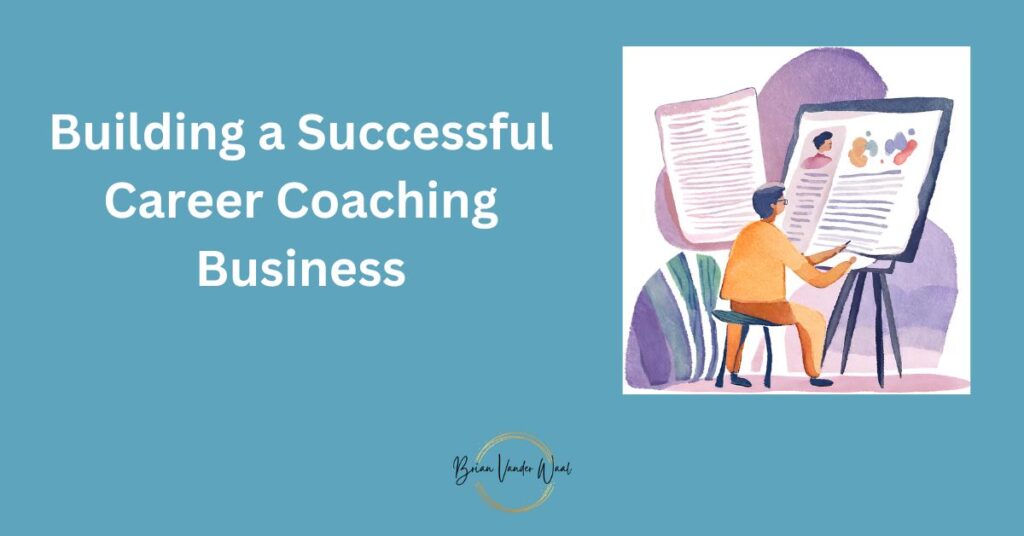
Establishing Your Coaching Business
Establishing a career coaching business involves creating a solid foundation for one’s practice. This includes:
- Developing a business plan
- Identifying a target market
- Meeting the necessary legal and financial requirements to operate as a career coach.
Six Important Steps In Establishing Your Coaching Business
Firstly, kickstart your coaching business by defining your unique coaching niche. Tailor your services to address the specific needs of your target clientele. We will discuss this in further detail below.
Secondly, determine the services offered, set pricing structures, and establish effective business processes. This is crucial when establishing a career coaching business.
Thirdly, craft a compelling brand and market your career coaching services in the following ways:
- Formulate a unique value proposition that distinguishes you from others.
- Craft an exceptional website.
- Utilize social media channels like LinkedIn to highlight your skills.
We will discuss this in further detail below.
Fourthly, consider the legal aspects. Register your business and comply with local regulations and tax laws. Consult with a business adviser and seek guidance on compliance from local authorities if needed.
Fifth, network in the coaching community in the following ways:
- Attend industry and coaching events
- Join a professional coaching body or association
- Connect with established coaches.
- Seek mentorship to glean insights from those who have successfully carved a niche in the field.
Build relationships that can foster professional growth, collaborations, or client referrals.
Finally, embrace the digital age. Offer remote coaching sessions to broaden your reach and engage with clients nationwide.
Establishing a solid foundation for your coaching business sets the stage for a flourishing and impactful practice. Remember that a thoughtful and strategic approach will help you achieve long-term success.
Launching your career coaching business requires a blend of strategic planning, passion, and a commitment to providing invaluable guidance. Establishing your coaching business in the USA or the UK involves ensuring your services resonate with your target audience.
Choosing Which Type of Career Coach You Will Be
Career coaching has various specialized areas tailored to meet the diverse needs of professionals. Here are a few areas you can consider when narrowing your focus.
Industry-specific Coaching
Industry-specific Coaches guide professionals seeking expertise in a particular field. They provide targeted insights and strategies to navigate their specific industry, ultimately enhancing their career trajectory. Industry-specific coaches often focus on one specific industry.
Transition Coaching
Transition Coaches aid those undergoing career shifts. They coach clients seeking a change in industry, role, or life stage.
Leadership Coaching
Leadership Coaches focus on cultivating and sharpening the skills of current or aspiring leaders. They guide them to navigate challenges and lead with impact.
Executive Coaching
Executive Coaches cater to top-level executives, offering strategic guidance for leadership effectiveness.
Job Search Coaching
Job Search Coaches work with clients to optimize their efforts, providing support in:
- Crafting resumes, CVs, cover letters, and personal statements
- Coaching clients in interview preparation
- Advising on navigating the job market.
Entrepreneurial Coaching
Entrepreneurial Coaches assist individuals venturing into business ownership, offering insights into strategic planning and business development.
Whatever the specific need, the diverse types of career coaching ensure that individuals receive targeted guidance for their unique professional goals. However, some career coaches incorporate more than one of the above focuses into their service offerings. Choosing your focus is the first step in developing a career coaching niche.
Developing a Career Coaching Niche
Developing a specialized niche within career coaching can differentiate one’s services and target specific client needs. Finding a niche can help career coaches stand out and attract clients seeking specialized expertise. It will enable you to stand out in a crowded market. As you develop your niche, consider the diverse needs of your potential clients and how your expertise can address those specific challenges.
Developing a Career Coaching Niche in the USA
In the United States, career coaching is as diverse as the professional paths it guides. Identify a niche that aligns with both your passion and the demands of the local job market. Perhaps you’re drawn to guiding individuals through executive-level transitions, helping them navigate the intricate web of leadership roles. Alternatively, specializing in industry-specific coaching, such as technology or healthcare, can position you as an expert in a particular field. By developing a focused career coaching niche, you refine your expertise and become a sought-after resource for individuals seeking guidance in their unique professional journeys.
Developing a Career Coaching Niche in the UK
In the United Kingdom, developing a career coaching niche involves
- Understanding the local job market
- Aligning your expertise with the specific needs of your audience.
Consider focusing on areas like:
- Sector-based niches like finance, healthcare, the green economy, or the creative sector.
- Career transitions for professionals in evolving industries
- Or guiding individuals navigating the complexities of corporate leadership.
Further, emphasize the unique value you bring to your clients. By developing a niche that speaks to the distinctive needs of the UK workforce, you position yourself as a valuable ally in your clients’ professional growth.
Marketing Your Career Coaching Services
If you want to have a successful career coaching business, you must utilize effective marketing strategies. Some examples include but are not limited to, content marketing, social media promotion, and networking. Implementing these marketing strategies enables career coaches to connect with their intended audience and build their brand. This is vital within the competitive coaching industry.
Effectively marketing your career coaching services is the cornerstone of building a thriving practice. A strategic and engaging marketing approach is essential to attract your target followers and build your brand effectively.
Marketing Your Career Coaching Services in the USA
Firstly, the key to successful marketing in the United States is creating a compelling narrative that resonates with your audience. Create a professional website showcasing your expertise and how you’ve positively impacted clients’ careers.
Secondly, use social media platforms to share amazing content, host webinars, and engage with your community. Consider guest appearances on podcasts or collaborations with industry influencers to broaden your reach. Collect and showcase client testimonials to build trust and credibility.
Thirdly, invest time, money, and resources in search engine optimization (SEO) strategies to ensure your services are easily discoverable online. By combining a captivating online presence with strategic collaborations, you’ll effectively market your career coaching services to a diverse audience.
Marketing Your Career Coaching Services in the UK
In the United Kingdom, it is crucial to tailor your messaging to align with the cultural and professional distinctions of the UK workforce. Firstly, utilise platforms like LinkedIn to connect with professionals and share insightful content. Secondly, leverage local business networks, attend industry events, and collaborate with organizations to establish your presence within the UK market. Thirdly, showcase your expertise through articles, blog posts, or contributions to industry publications. Finally, consider offering free workshops or webinars to connect with potential clients. Building a local and online presence ensures that your career coaching services are accessible and appealing to individuals navigating their professional journeys.
Navigating the Career Coaching Industry
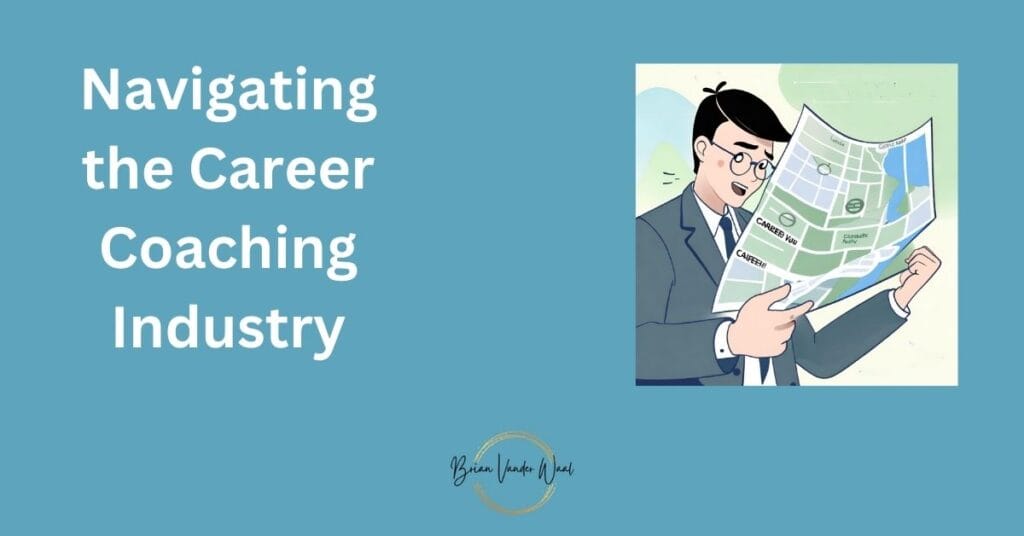
Understanding Career Paths and Job Search Techniques
Understanding the various career paths and job search techniques is crucial for aspiring career coaches. Comprehending the intricacies of career paths and job searches is also fundamental to guiding individuals toward fulfilling professional journeys.
Understanding Career Paths and Job Search in the USA
In the USA, a career coach must know the diverse sectors and industries that make up the job market. Knowing and understanding different career paths allows coaches to tailor their guidance effectively. Moreover, advising clients about navigating job search in the USA involves staying abreast of:
- The latest recruitment trends
- Technological advancements
- The shifting dynamics of remote work.
Aspiring professionals may seek guidance on career pathways ranging from traditional corporate roles to emerging sectors like technology and healthcare. Understanding the intricacies of job searches in the USA requires staying attuned to the following:
- Employers’ evolving demands
- The importance of networking
- The role of online platforms in recruitment.
Coaches must equip clients with strategies for navigating the competitive job market. They must also equip them with tools like high-quality CVs, resumes, cover letters, and personal statements. Further, they must prepare them for face-to-face and virtual interviews through mock interviews and providing interview tips. This will ensure their client’s journey is not just a job search but a strategic leap toward a fulfilling career.
Understanding Career Paths and Job Search in the UK
The outlook for career paths and job searches in the United Kingdom is unique. Career coaches here must navigate a professional terrain shaped by industries such as finance, healthcare, and creative sectors. Understanding the dynamics of career paths involves acknowledging the significance of sectors like finance, the burgeoning tech industry, and entrepreneurship. Navigating the job search scene in the UK demands insights into:
- Regional job markets
- The importance of industry-specific skills
- The role of networking events.
Understanding the differences between the requirements for CVs in the UK and resumes in the USA is also important. Many assume the requirements are the same. As a result, they utilize US-based resume templates or base their CV creation on information they found online about resume building.
Further, many public, voluntary, and charity jobs in the UK do not require a CV. Instead, candidates must complete application forms, usually including writing a personal statement based on the Person Specification in the role profile. As a result, Career Coaches in the UK must have an in-depth understanding of how to tailor both CVs and personal statements to the role their clients are applying for.
Overall, Career Coaches in the UK must be able to guide individuals in finding jobs and carving distinctive career paths.
Applying Career Coaching Techniques
Applying effective coaching techniques is crucial for empowering individuals on their professional journeys. Career coaches need a versatile toolkit beyond traditional counseling.
Coaching techniques involve:
- Working with clients to foster self-discovery.
- Helping clients identify their strengths.
- Aligning them with their career goals.
Employing a goal-oriented approach, career coaches guide individuals in setting realistic objectives and developing SMART action plans. Regardless of location, successful career coaching techniques foster immediate career success and sustainable and fulfilling professional paths.
Networking as a Career Coach
As a career coach, building robust networks is not just a professional skill; it’s a strategic imperative. In a sector that thrives on connections, networking is akin to opening doors of opportunity. Career coaches should cultivate relationships with professionals, industry leaders, and even other coaches, creating a web of support and collaboration. Engaging in networking events, both virtual and in-person, allows coaches to:
- Stay abreast of industry trends.
- Access a pool of potential clients.
- Forge partnerships that enhance their services.
Networking as a Career Coach in the USA
In the United States, networking is more than a means of expanding a Career Coach’s professional circle. It is a tool for success.
Firstly, Career coaches should actively participate in industry conferences, workshops, and online forums to establish their presence. Building connections with professionals from various sectors enables coaches to offer diverse perspectives to their clients.
Secondly, using social media platforms, especially LinkedIn, is a staple for career coaches in the USA. Digital networking complements traditional methods.
Networking is not just about transactions. It is also about fostering genuine relationships that contribute to the collective growth of the professional community.
Networking as a Career Coach in the UK
Similarly, networking is integral to a career coach’s toolkit in the United Kingdom. Firstly, UK-based coaches should attend networking events tailored to the local business community.
Secondly, building connections within professional associations and attending sector-specific gatherings help coaches stay informed about the unique challenges their clients face.
Beyond these gatherings, engaging with national campaigns and events is also vital; for instance, many coaches use National Careers Week as a focal point to connect with schools and prospective clients.”
However, Career coaches should focus on cultivating genuine connections beyond immediate professional gain. As a career coach, networking is not just about expanding reach; it’s also about creating a supportive ecosystem. This supportive community fosters growth and success for coaches and their clients.
AI Tools Every Successful Career Coach Use in 2026

AI tools have become indispensable assets for career coaches, transforming how professionals navigate their professional journeys. These tools leverage machine learning and data analytics to provide tailored insights, enabling coaches to offer more personalized guidance.
Many AI tools enhance the overall career coaching experience, including:
- Sophisticated assessment tools that analyze individuals’ skills and aptitudes to recommend suitable careers
- AI-driven chatbots that facilitate real-time communication and support.
AI provides added value to coaching by offering tools that support clients between coaching sessions. These tools can be incorporated as part of your coaching package or can be sold as add-ons. They include:
- An Al Career Coach can support your clients through job search, skills analysis, self-reflection, goal setting, and more.
- A Resume Builder can help your clients create and optimize their resumes by parsing and analyzing CVs to align with specific job requirements. This assists clients in standing out in competitive markets.
- An AI Interview Coach can help your clients with interview preparation between appointments.
By incorporating AI tools, career coaches can:
- Elevate their services
- Stay ahead of industry trends
- Offer cutting-edge support to individuals seeking career success.
Conclusion: Begin Your Career Coaching Journey
Embarking on the journey to become a Career Coach is a rewarding endeavour. It is filled with opportunities to empower individuals on their professional paths. In this article, aspiring coaches have learned:
- The essential skills needed to excel in career coaching
- How to launch a career coaching business.
Whether you’re in the USA or UK, the principles remain the same—passion, continuous learning, and a commitment to fostering growth.
As you venture into career coaching, remember that each client has a unique story. Your expertise will guide your clients as they continue to shape their stories. To be successful, you must refine your skills, establish a niche, and embrace the power of networking.
So, are you ready to begin your successful career coaching practice? Please reply in the comments below.
Frequently Asked Questions (FAQs) – How to Become A Career Coach
How can I begin my career coaching journey in 2025?
To begin your career coaching journey in 2025, you should first research and understand the qualifications and certifications required to become a career coach. Then, enroll in a certified professional career coach program or coaching institute to gain the necessary skills and knowledge. To learn more and see all the steps required to begin your career coaching journey, read my blog article above called: “How to Become A Career Coach in 2025 & Start Your Business
What does a career coach do, and how can they help me?
A career coach helps individuals with various aspects of their professional lives, such as finding a new job, advancing in their current career, or making a career transition. Further, they provide career management and guidance based on the individual’s goals and strengths, helping them succeed in their career path.
How do I become a certified career coach?
To become a certified career coach, you must complete a recognized certification program from trusted career coaching and resume writing organizations, such as the National Career Development Association,
International Coaching Federation, Career Development Institute (CDI), or other reputable career coaching institutes. These programs provide the necessary training and accreditation to practice as a career coach.
Can I specialize in a specific career or industry as a career coach?
Yes, as a career coach, you can specialize in specific career fields or industries based on your expertise and interest. This specialization allows you to provide targeted career coaching and leadership advice to individuals seeking guidance within those sectors. Learn more in my blog article above called: “How to Become A Career Coach in 2025 & Start Your Business.”
What are the benefits of becoming a career and leadership coach?
Becoming a career and leadership coach allows you to offer comprehensive coaching services that address career development and leadership skills. This holistic approach can attract a broader range of clients and provide them with valuable expertise in navigating their career paths and enhancing their leadership capabilities.
Is online career coaching a viable option for launching a career coaching business?
Yes, online career coaching has become increasingly popular and is a viable option for launching a career coaching business. Virtual career coaching allows you to reach a wider audience and provide coaching services remotely, opening up opportunities for clients who may not have access to in-person coaching.
What are the critical steps to becoming a reputable career coach?
Key steps to becoming a reputable career coach include the following:
1. Obtaining relevant certifications
2. Gaining practical experience through internships or mentorships
3. Continuously learning about career coaching trends and best practices
4. Building a solid network within the career coaching community.
Learn more in my blog article above called: “How to Become A Career Coach in 2025 & Start Your Business.”
How can a career coach help me with career development and advancement?
A career coach can assist you with the following:
1. Creating a strategic career development plan
2. Identify areas for skill enhancement
3. Provide guidance on advancing in your chosen career
4. Offer valuable advice, guidance, and resources to help you achieve your career goals.
Where can I learn about career coaching and its best practices?
You can learn about career coaching and its best practices by enrolling in accredited coaching programs, attending workshops and seminars offered by career coaching organizations, and staying updated with reputable career coaching resources and publications.
You can also learn more in my blog article above called: “How to Become A Career Coach in 2025 & Start Your Business.”
What is the role of national career development associations in the career coaching industry?
National career development associations are pivotal in establishing industry benchmarks, presenting professional growth opportunities, and nurturing a community of career coaches and counsellors. Engaging with these associations provides access to valuable resources and networking opportunities within the field.
